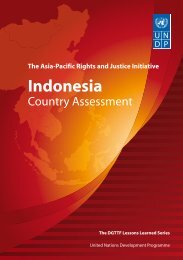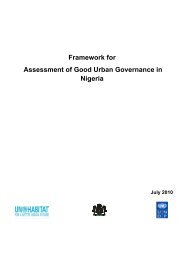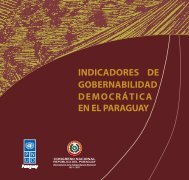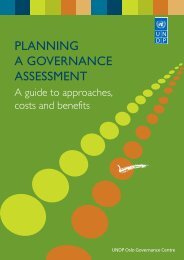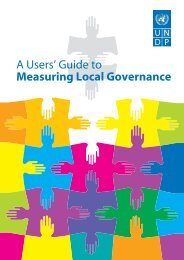English - UNDP
English - UNDP
English - UNDP
Create successful ePaper yourself
Turn your PDF publications into a flip-book with our unique Google optimized e-Paper software.
Local Governance and Decentralization<br />
The Tax Code (2004) specifies the local tax revenues: property<br />
tax, transport tax, state duties, and retail taxes. However, all<br />
other taxes are national and are shared between central and<br />
local budgets 23 . This is done in accordance with the Public<br />
Budget law for the following year. Non-tax revenues and duties<br />
include the proceeds from privatization, the sale of shares,<br />
patent fees, dividends on government shares, interest on state<br />
capital investments, administrative fees, fines, and penalties.<br />
Local budgets also receive revenue in the form of targeted<br />
funds, bank loans, and transfers for mutual settlement or the<br />
reduction of budget deficits.<br />
The budgeting process is centralized, with the Ministry of<br />
Finance playing a key role. It determines, on the basis of norms<br />
and estimations and required subsidies, the revenues and<br />
expenditures of local budgets. The gap between expenses and<br />
generated revenues has to be covered by the annual review of<br />
national tax distribution between central and local budgets, as<br />
well as by subsidies.<br />
23<br />
Taxes are shared in accordance with the Public Budget law for the following<br />
year.<br />
14




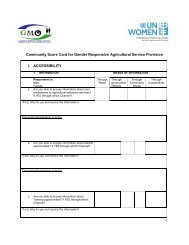

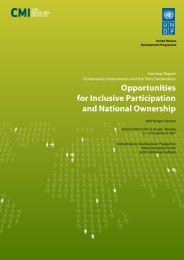
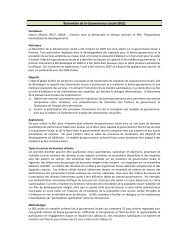
![GuÃa del Usuario ] - Governance Assessment Portal](https://img.yumpu.com/44740603/1/190x253/gua-a-del-usuario-governance-assessment-portal.jpg?quality=85)
